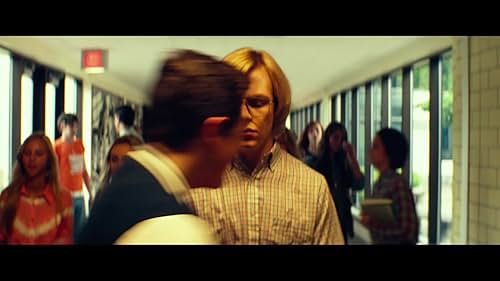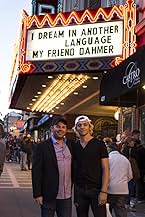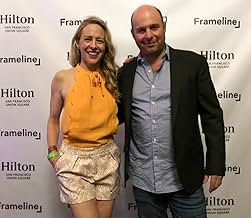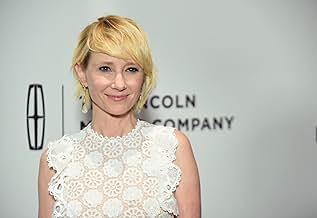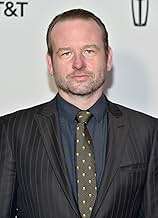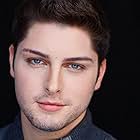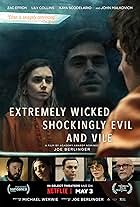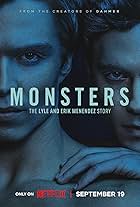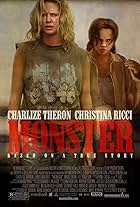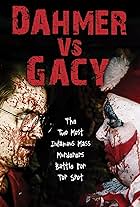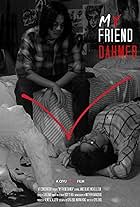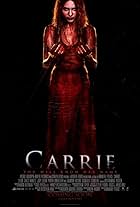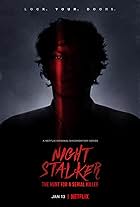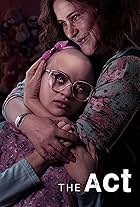A young Jeffrey Dahmer struggles to belong in high school.A young Jeffrey Dahmer struggles to belong in high school.A young Jeffrey Dahmer struggles to belong in high school.
- Awards
- 1 win & 2 nominations
Brady M.K. Dunn
- Bossy
- (as Brady Dunn)
Michael Ryan Boehm
- Shorty
- (as Michael Ryan)
Ben Zgorecki
- Bully Jock
- (as Benjamin Zgorecki)
Gabriela Novogratz
- Lisa Watkins
- (as Gaby Novogratz)
- Director
- Writers
- All cast & crew
- Production, box office & more at IMDbPro
Storyline
Did you know
- TriviaMy Friend Dahmer (2017) was filmed in Jeffrey Dahmer's actual childhood home in Bath, Ohio. Location Manager Kathy Ruggeri also wanted to film scenes that took place at Revere High School, Dahmer's alma mater, at the actual high school in Richfield, Ohio itself, but the school administration declined her request.
- GoofsWhen Jeff gets kicked out of a supermarket for goofing off, several modern cars pass by from outside.
- Quotes
Jeffrey Dahmer: I'm just like anybody else.
- Crazy creditsEpilogue: "On June 18, 1978, Steven Hicks went back to Jeffrey Dahmer's house. He was never seen again. In July, 1991, Jeffrey Dahmer was arrested and confessed to murdering 17 young men."
- ConnectionsFeatured in Becoming Evil: Serial Killers: 21st Century Serial Killers (2019)
- Soundtracks5.7.0.5
Written by Steve Lunt (as Stephen Lunt) and Lol Mason (as Laurence Mason)
Performed by City Boy
Courtesy of Cherry Red Records
Featured review
Based on the graphic novel of the same name, My Friend Dahmer, attempts to take a new perspective on the 'serial killer' film. The source material, written by John (Derf) Backderf, provides an insight into the High School years of this his (then) friend, Jeffrey Dahmer, who is most infamous for his serial killing spree of his male lovers and also his cannibalistic tendencies. We follow Dahmer through his troubled home life, burgeoning deviant behaviour, as well as his relationships with his 'friends' (more like bullies), whom he gains through odd behaviours, such as faking fits in school.
Throughout the film there is a distinct struggle by the director (Marc Meyers) to reconcile his views of Dahmer as serial killer, with the sympathic portrayal of him by his former friend. Whether this is due to Backderf's guilt of his treatment of Dahmer, an emotion we glimpse in his character towards the end of the film, or if it is an attempt by Meyers to make a profound statement on human psychology and the latent murderer in any of us, is unclear. However, this is the film's greatest weakness in we can never be sure of its ultimate intention.
On the whole, Ross Lynch's performance of Dahmer is to be lauded; he doesn't become a stereotype at any point, unlike the rest of the cast. Alongside his performance, the ideas of objectification and identification with Dahmer are the best feature of this film. From the opening, the choice of framing of both Dahmer and others, leads to a fragmentation of the body, only giving us glimpses of eyes, legs, bodies; linking the intertwining of Dahmer's obsession of sexualisation and objectification of his future victims. The filmmaking itself is extremely interesting, with its contrasting use of shadow and light; focus and blurring of Dahmer and the choice of camera angles which often distance us from Dahmer, giving us the same predatory perspective he would later use himself.
By showing Dahmer through Backderf's perspective, it almost feels as though Backderf is trying to atone for his behaviour towards Jeff, leading to Meyers' confused direction. As a result, the film becomes dull, as events are repeated monotonously, to emphatically suggest that Dahmer's eventual behaviour was caused by his external circumstances. The film never dares to show Dahmer as murderer or explain his eventual behaviour, leaving the film on an unsatisfying conclusion. Whilst the film succeeds in examining how circumstances can affect psychology; by making Jeffrey Dahmer(!) the nicest person we encounter, the film doesn't fully demonstrate or explore the complexity and horrific, murderous nature of Dahmer.
An upcoming film that seems to be taking a similar approach to serial killer biopics is Extremely Wicked, Shockingly Evil and Vile, a film about Ted Bundy, focusing on the serial killer from his girlfriend's perspective. Oddly enough, the film stars another Disney alumni, turned serial killer actor, Zac Efron, a trend it seems to try and escape their whiter than white image from the House of Mouse. Whether this film can succeed in balancing the killer's evil deeds with a psychological approach, which tries to rationalise or explain his behaviour, therefore presenting a serial killer, not as an 'Other', but as a human, remains to be seen.
Throughout the film there is a distinct struggle by the director (Marc Meyers) to reconcile his views of Dahmer as serial killer, with the sympathic portrayal of him by his former friend. Whether this is due to Backderf's guilt of his treatment of Dahmer, an emotion we glimpse in his character towards the end of the film, or if it is an attempt by Meyers to make a profound statement on human psychology and the latent murderer in any of us, is unclear. However, this is the film's greatest weakness in we can never be sure of its ultimate intention.
On the whole, Ross Lynch's performance of Dahmer is to be lauded; he doesn't become a stereotype at any point, unlike the rest of the cast. Alongside his performance, the ideas of objectification and identification with Dahmer are the best feature of this film. From the opening, the choice of framing of both Dahmer and others, leads to a fragmentation of the body, only giving us glimpses of eyes, legs, bodies; linking the intertwining of Dahmer's obsession of sexualisation and objectification of his future victims. The filmmaking itself is extremely interesting, with its contrasting use of shadow and light; focus and blurring of Dahmer and the choice of camera angles which often distance us from Dahmer, giving us the same predatory perspective he would later use himself.
By showing Dahmer through Backderf's perspective, it almost feels as though Backderf is trying to atone for his behaviour towards Jeff, leading to Meyers' confused direction. As a result, the film becomes dull, as events are repeated monotonously, to emphatically suggest that Dahmer's eventual behaviour was caused by his external circumstances. The film never dares to show Dahmer as murderer or explain his eventual behaviour, leaving the film on an unsatisfying conclusion. Whilst the film succeeds in examining how circumstances can affect psychology; by making Jeffrey Dahmer(!) the nicest person we encounter, the film doesn't fully demonstrate or explore the complexity and horrific, murderous nature of Dahmer.
An upcoming film that seems to be taking a similar approach to serial killer biopics is Extremely Wicked, Shockingly Evil and Vile, a film about Ted Bundy, focusing on the serial killer from his girlfriend's perspective. Oddly enough, the film stars another Disney alumni, turned serial killer actor, Zac Efron, a trend it seems to try and escape their whiter than white image from the House of Mouse. Whether this film can succeed in balancing the killer's evil deeds with a psychological approach, which tries to rationalise or explain his behaviour, therefore presenting a serial killer, not as an 'Other', but as a human, remains to be seen.
- How long is My Friend Dahmer?Powered by Alexa
Details
- Release date
- Country of origin
- Official sites
- Language
- Also known as
- Mi amigo Dahmer
- Filming locations
- 4480 West Bath Road, Bath Township, Ohio, USA(as Jeffrey Dahmer's home)
- Production companies
- See more company credits at IMDbPro
Box office
- Gross US & Canada
- $1,361,611
- Opening weekend US & Canada
- $35,545
- Nov 5, 2017
- Gross worldwide
- $1,436,751
- Runtime1 hour 47 minutes
- Color
- Aspect ratio
- 2.39:1
Contribute to this page
Suggest an edit or add missing content


